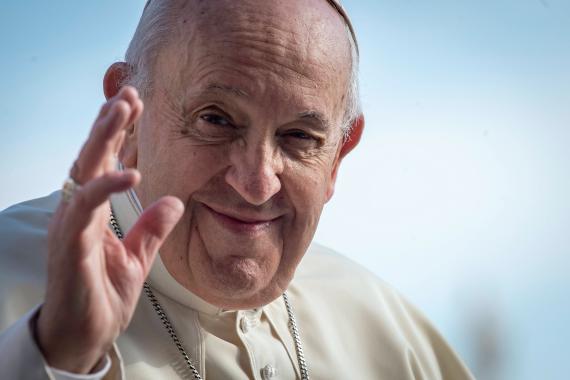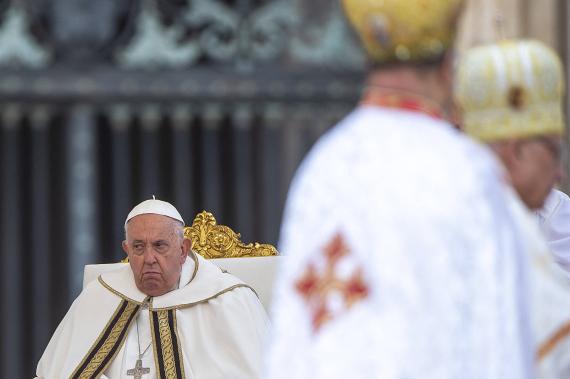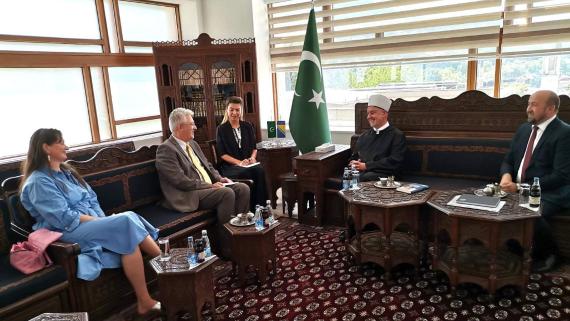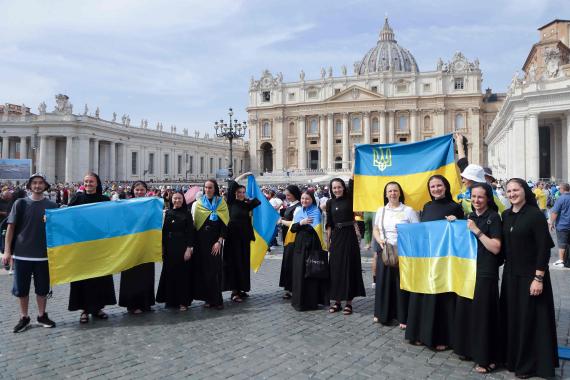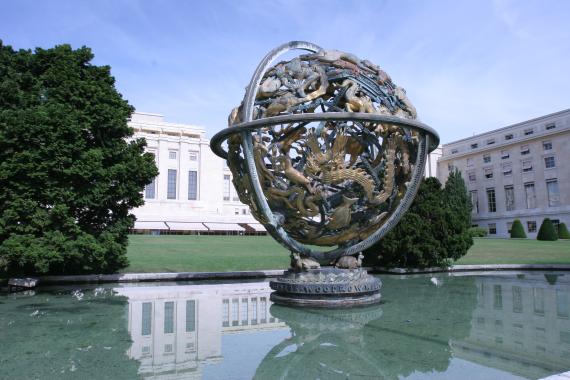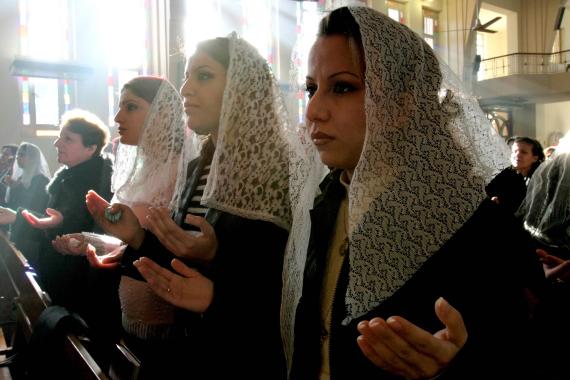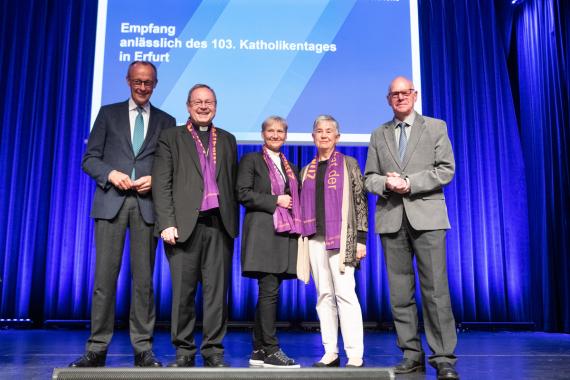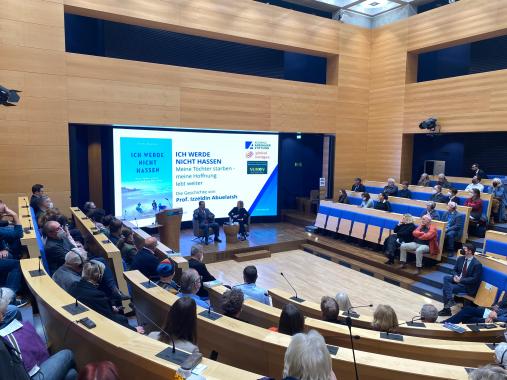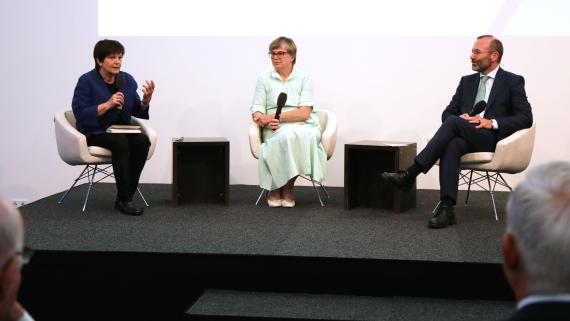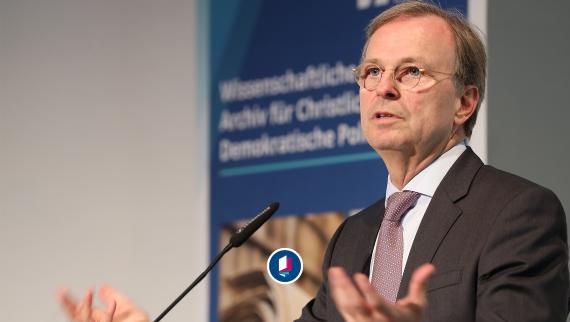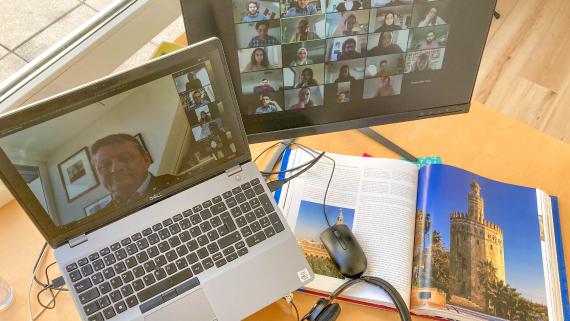The freedom of committing to a religion, or rejecting it, is.... a core component of human dignity. Without religious freedom, there is no true freedom.
At a glance
- Freedom of religion is an important constitutional right. Together with the idea of human dignity, freedom of thought and freedom of opinion, it forms the beating heart of human rights.
- The basic prerequisite for exercising religious freedom is an active religious policy. It creates the framework conditions for the development of religions and world views.
- Secularisation, pluralisation and individualisation are changing Europe’s religious landscape: but that does not mean religious policy is becoming less relevant. On the contrary – its issues are considered to be increasingly important.
- We contribute to the development of concepts and perspectives for a modern religious policy and promote religious policy networking and religious dialogue through platforms and discussion forums.
- Internationally, we are committed to protecting religious minorities and safeguarding the fundamental right of religious freedom in many countries.
Content
1. Religious freedom is a core human right
2. Religious policy Is gaining in importance
3. The Konrad-Adenauer-Stiftung promotes religious-political dialogue
4. Our offers and projects on the topic
5. Publications, events and media contributions on the topic
Religious freedom is a core human right
Religious freedom occupies a high status within our understanding of fundamental values. Together with the idea of human dignity and freedom of thought and expression, it is at the core of human rights. Accordingly, Article 4 of the Basic Law states that the freedom of faith, conscience, religious and ideological beliefs are inviolable.
A key prerequisite for granting religious freedom is an active religious policy, understood as the organisation of intra-societal relationships of various religious and ideological communities as well as their followers and believers among themselves and vis-à-vis the state. Without such religious policy, there is no religious freedom. Religious policy creates the framework conditions for developing religions and ideologies. Each free society depends on them.
Religious policy Is gaining in importance
Central changes in the religious landscape in Germany and Europe – secularisation, pluralisation and individualisation – have set the previous relationship between the state and religious communities in motion. These changes have not led to religious policy losing any of its importance, however. On the contrary, religious policy issues are gaining in significance. Discussions are intensifying on the role of churches in politics and society and Germany’s Christian character. The religious diversity of our country has grown due to globalisation and migration. Previously foreign religious and cultural traditions and symbols challenge and enrich German society and its legal system.
How can the tried and tested cooperative relationship between state and religious communities be adapted to changed framework conditions? How can non-Christian religious communities be integrated into this system? How can the state protect and promote Jewish and Muslim life in Germany? How can clergy and pastors of non-Christian religions be successfully trained and employed in Germany?
The Konrad-Adenauer-Stiftung promotes religious-political dialogue
With its religious policy work, the Konrad-Adenauer-Stiftung wants to contribute to finding answers to these questions and developing viable concepts and perspectives for a modern religious policy. It promotes religious policy networking and dialogue through platforms and discussion forums. It advocates social debate on the relationship between religion and policy. It discusses legal options for recognising religious communities, shows ways to further develop denominational religious education and discusses the religious sources of voluntary commitment.
The Konrad-Adenauer-Stiftung engages in and promotes religious policy dialogue in its international work, too. Globally, it takes part in creative thinking and debates about the public impact of religion and its political framework. It provides platforms for exchange on the relationship between state and religious communities. It connects religious, social and state actors worldwide, and advocates for the protection of religious minorities and safeguarding of the fundamental right of religious freedom in many countries.
Our offers and projects on the topic
Discussion forums and publication projects
The Konrad-Adenauer-Stiftung is involved in several discussion forums and produces multi-part publication projects on current religious and socio-political topics. Especially worthy of mention are the two blog projects “Expert Initiative on Religious Policy” and “krezu-und-quer-.de”, which addresses religious policy issues.
Expert Initiative Religious Policy
The Expert Initiative Religious Policy (EIR) is an academic-political forum for discussion on religious policy issues. The EIR blog provides a knowledge forum and debate platform on current events and developments in constitutional law, German politics and the emerging common European constitutional space. Based on various expert opinions, the blog makes proposals on how to further develop the religious legal system within the meaning of freedom of religion and ideology.
Discussion forum “kreuz-und-quer.de”
The blog “kreuz-und-quer.de” sees itself as a discussion forum for political action out of Christian duty. The blog articles are deliberately diverse: They ask, for instance, how the church and politics intend to deal with the most important problems of our time. While also asking us what conclusions we draw from this.
Contributions to the Debate on Abortion
The question of the existence and significance of human life is a fundamental Christian concern. In discussions on potential reforms and the liberalization of abortion laws, it is essential that the dignity of unborn life continues to be respected and considered. Current legal consensus protects both the autonomy of the mother and the right to life of the unborn. According to Christian belief, unborn life deserves the same protection and dignity as a person who has been born.
Learn more about the contributions to the debate on abortion
Contributions to the Debate on Assisted Suicide as an Act of Business
The Federal Constitutional Court declared § 217 of the German Criminal Code (StGB) to be invalid in February 2020. Until then, the paragraph had made the business-like promotion of suicide a punishable offence. This decision presents society and politics with the question on how assisted suicide and a desire to die should be dealt with in future. Our debate contributions provide an impetus for thought and discussion.
Learn more about the contributions to the debate on assisted suicide



















